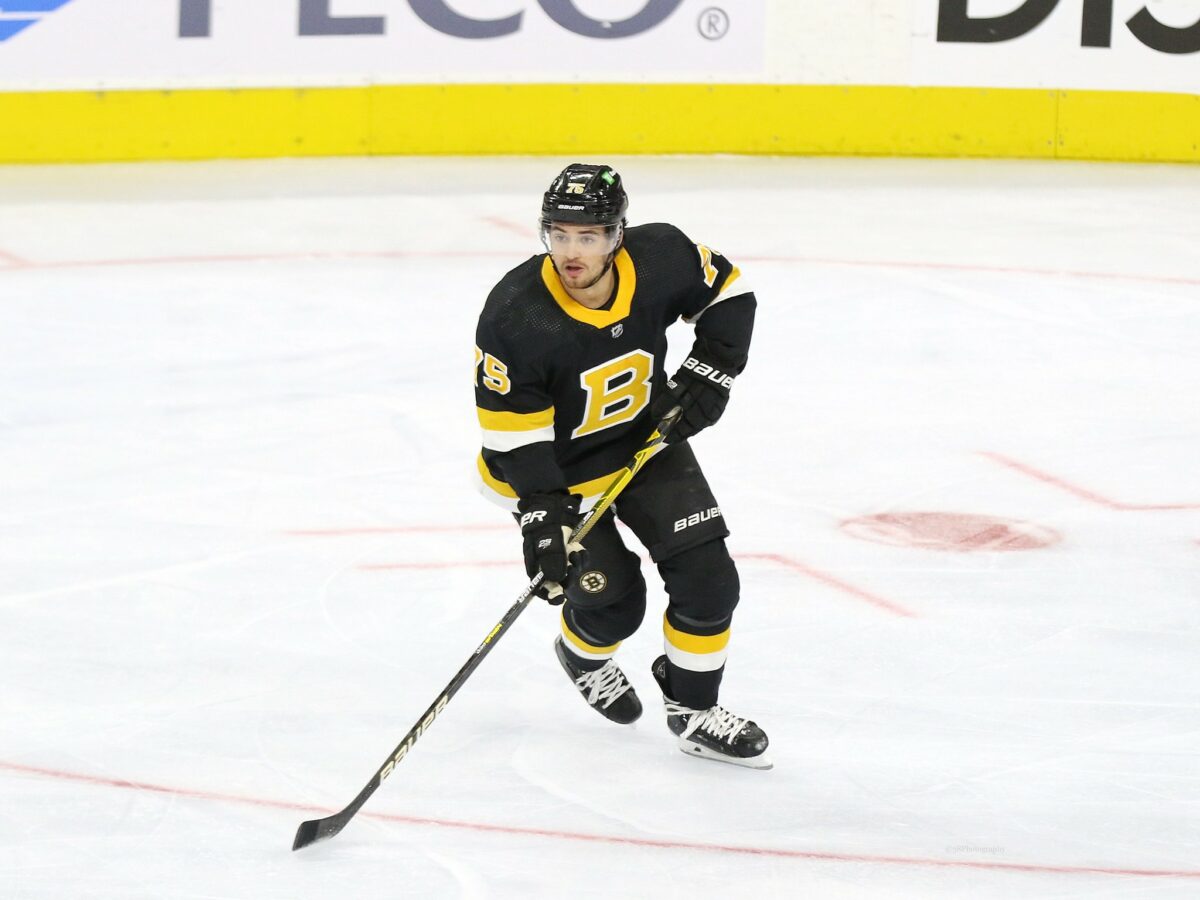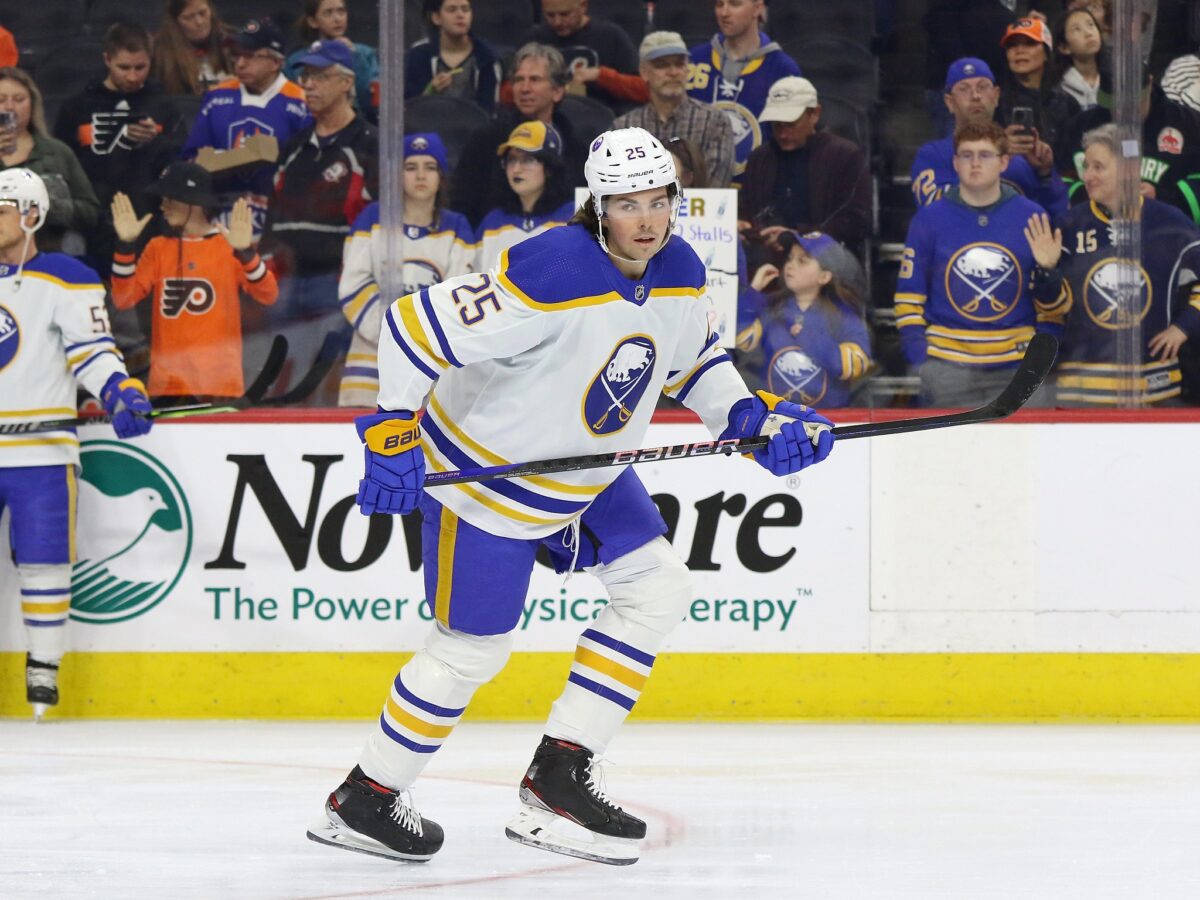Going into this season, a lot of eyes will be on the Buffalo Sabres’ goaltending and defense. As the offense has proven that they can reliably put the puck in the back of the net, the focus now shifts to keeping the puck out of their own net. A massive part of this equation will be the defensive pairings and how they perform. For the bulk of last season, Rasmus Dahlin and Mattias Samuelsson were paired up together, and the model for their style of play should be replicated on the second pair with Owen Power and Connor Clifton in 2023-24.
For the majority of last season, Power played with Henri Jokiharju and did fairly well, but neither of them did exceptionally well and went through numerous rough patches. Both of them play a transitional two-way game and neither of them shoots the puck very much. Power has the better offensive skills of the two, which means he needs the room to make plays happen; he needs a defensive partner who will either stay back or create space for him. Jokiharju is not the partner to accomplish that, but Clifton is, and that is a huge reason his signing in Buffalo makes sense.
What Clifton Brings To The Table
The first thing that comes to mind with Clifton is his physicality. The Sabres were dead last in the league last season in hits with a total of 1,084, and Clifton alone had 208 during the regular season. By himself, he could have counted for 20 percent of the total, and having that added dimension to their game for 2023-24 will be a game-changer. While his opportunities have been limited based on his average ice time (17:51), he deserves a chance to do more and have a bigger role with his new team.

Last season he finished with 23 points in 78 games, so he does have some offensive abilities to bring to the table. While he functions as a two-way bruising defender, that has not stopped him from contributing on the scoring side of the game. His shooting percentage was 5.38 percent, which was higher than Power’s 3.08 percent, so putting them together will only boost those numbers for both players. Clifton brings all the right qualities to the ice, and he is an instant upgrade to Jokiharju on the second pairing. It is his skills combined with Power’s that will make for an exciting dynamic for the Sabres’ top two defensive pairs.
Power Needs Room To Be Creative
Everyone saw the success that Dahlin had as soon as Don Granato took over behind the bench and gave him the room to be creative and make mistakes. With Power, he has been slightly more cautious as he appeared to be pushing the former first-overall pick to stay back and learn the defensive side of the puck first. It definitely paid off as he still put up 35 points and was a plus-10 by year’s end. Too many times during the season, I found myself screaming at Power to just take the chance and shoot the puck. He did the same thing nearly every time as he would wind up for a shot in some way, and then stop himself to peel back or make a pass. While it was infuriating to watch some nights, it appeared to be by design since he was doing it so often.
Related – Sabres’ Top 10 Prospects for 2023-24
Now that his rookie season is in the books, he deserves the chance to show what he can really do. He is a great puck-moving defender with limited physical capabilities to this point. Power uses his size to maintain control of the puck with positioning rather than force. Pairing him with a defender like Clifton will allow him to play off his partner’s physicality and make chances happen with more open space. His passing is incredibly accurate and quick, and giving him a partner that complements him instead of mirroring him (like Jokihrju does) will prove to be much more productive.
Developing a “One-Two” Punch On The Back End
The Sabres’ top pair of Dahlin and Samuelsson showed a great formula for success that Granato should attempt to replicate with Clifton and Power. Samuelsson functions as a stay-at-home defender breaking up plays, throwing hits, and always being the first man back to prevent odd-man rushes. Dahlin was the offensive mind between the two and because of the success of his defensive partner, he had the freedom to do what he does best. This type of dynamic could be replicated with Clifton and Power.

Having two pairs of defensemen that play physical and offensive simultaneously would be incredibly dangerous. The Sabres already have the forward assets to make offense happen, but if they use these two defense pairings to generate offense in a different way, they will be filling the opposition’s net while keeping the workload light for their goaltenders. This leaves the third pairing open for the likes of Jokiharju, Riley Stillman, and Ilya Lyubushkin to develop chemistry with newly signed Erik Johnson and create a similar dynamic there. Ultimately, the Sabres have the opportunity to create offense and physicality from the back end and build upon the poor numbers from last season. If they solidify this group early and get their gameplay in good form, the Sabres will be a force to be reckoned with all year long.
